January 15, 2014
It finally stopped raining last weekend. (The locals swear they’ve never seen a year this wet.) Naturally, we packed our beach bags, cleaned out the fridge and proclaimed it a picnic! then hightailed it out of the house to what many have described as:
The most beautiful beach in the world…
The water was stunning. Always is. Pelicans swooped and palms danced and clouds drifted dreamily, as usual.
The kids bolted for the waves, we made camp, made cozy, made furniture…
Then for safety’s sake, plowed a path from our picnic to the water…
Before I continue, before your emotions pull you under like the tide, I have a request of you:
Open back up. Any hopelessness or fear or frustration you felt from the very first photo? Let it go.
Just breathe for a minute. Drop the judgements, any stories, all the anger. You can pick them back up at the end of this post if you want, but for now, let’s just stay…curious.
Better?
By far, the most common reaction I hear from vacationers who explore this region’s beaches (beyond those manicured every morning) is:
“Wow. How sad.”
And while I get it (such reactions are easy, after all), I’ve been questioning the usefulness of this kind of thinking lately. Its usefulness to me, to our planet and to our perception of the “problems” themselves.
Here’s what I wonder:
At what point does the situation become sad?
When our waste washes up en masse? Or when the very first bottle cap landed on foreign soil and foretold the plastic pilgrimage to come?
Why don’t I feel the same sadness while making dinner/buckling her seatbelt/watching them color?
Why does it hurt more when I toss something than when I first select it from rows of prettily packaged promises?
Was it sad while being hugged by a small child, or not until it washed up dismembered, the embrace left behind leagues ago?
Is it sadder that corporations are not held accountable or that we don’t always hold ourselves to the highest of standards?
Is the greater brokenness within our systems or within the peoples’ hearts who create them?
Mostly, I ask myself (and now you):
Of what benefit is it to observe the consequences of our choices — choices we’ve all benefitted from in some way — and attach negative labels to them?
Why is it that when we see trash washed ashore, for example, we don’t feel gratitude for the experiences and enrichment it represents?
{Keep breathing. They’re just questions.}
A yoga teacher of mine once said that a negative emotion should only be held for 90 seconds before we begin to release it. That 90 seconds is enough time for it to serve its purpose: steering us away from harm and toward our deepest truth.
In this light, whether we settle into the sadness or allow it to guide us toward something greater (deeper truth, higher consciousness, bliss, the image of God — choose your flavor), is entirely up to us and ultimately determines our effectiveness in creating change.
In fact, settling for sadness without digging deeper to the lessons beneath it seems remarkably similar to dumping our waste in the ocean. It’s like saying, “I don’t know where else to put it,” and tossing it somewhere so vast that its significance seems somehow lessened. Thing is, life doesn’t actually work that way. Waste, whether literal or figurative, simply moves about and resurfaces again somewhere else.
Cumulative negative emotions are no less toxic to our consciousness than cumulative plastic is to the planet.
And as Eckhart Tolle reminds us, consciousness counts:
“If your mind carries a heavy burden of past, you will experience more of the same. The past perpetuates itself through lack of presence. The quality of your consciousness at this moment is what shapes the future.”
So the same must apply to our collective consciousness. Meaning, the stories we tell ourselves as a species matter, too.
- What if instead of holding onto the story that we’re destroying the planet, we act as if we just arrived here and simply work with what we see before us, correcting evermore intuitively.
- What if we observed the world not with judgement and fear, but curiosity and creativity?
- What if we approach the world’s “problems” as we do artistic endeavors or true love or a game for which we’re conditioned, instead of impossibly enormous tragedies to be averted?
Fortunately, we need not look far for examples of this exact distinction in thinking. In the absence of judgement, children have no problem:
Discovering treasures…
Seeing potential…
Making do…
Envisioning opportunity…
And figuring shit out…
Kids aren’t wired to see tragedy. They’re wired to see possibility.
I can’t help but think that if we had half their curiosity and half our own fear and judgement, we’d be solving these dilemmas twice as fast.
I don’t have all the answers. No one else does, either. But I don’t really think answers are what we need right now. I think what we need are bigger and deeper questions.
About the reasons we’ve become so complacent and detached from the very life force that sustains us.
About the relevance of negative thoughts given ever-present abundance.
About the effectiveness of fear vs. compassion and empathy.
About the roots and the fruits of judgement.
About what coming generations truly need from us.
Yesterday, as I was wrapping up this post and contemplating its ending, I ran across an article about a guy named Wade Davis and was delighted to have found a kindred wanderer/ponderer.
A world renowned anthropologist and explorer, Wade writes,
“The world is not dying. It’s not falling apart. It’s changing. What young generation has ever come into its own in a world free of peril?…I personally believe that pessimism is an indulgence, despair an insult to the imagination. There are wonderfully positive things out there…I tire of those who fuel the flames of fear.”
Me too, Wade. You and me and so many others.
Tulum’s beaches are still beyond beautiful. You can still come here and see paradise exactly as it’s painted on the postcards. But to those of you who can handle it, to those whose hearts are whole enough to bear yet another break, I encourage you to get off the beaten path, see what paradise actually looks like (in your neck of the woods, for starters) and accept it exactly the way it is. Then, after 90 seconds, take your sadness and release it to the sea.
Of course, you don’t have to. Just like you don’t have to refrain from tossing your trash to the tide.
“The emotion of fear often works overtime. Even when there is no immediate threat, our body may remain tight and on guard, our mind narrowed to focus on what might go wrong. When this happens, fear is no longer functioning to secure our survival. We are caught in the trance of fear and our moment-to-moment experience becomes bound in reactivity. We spend our time and energy defending our life rather than living it fully.”
― Tara Brach, Radical Acceptance
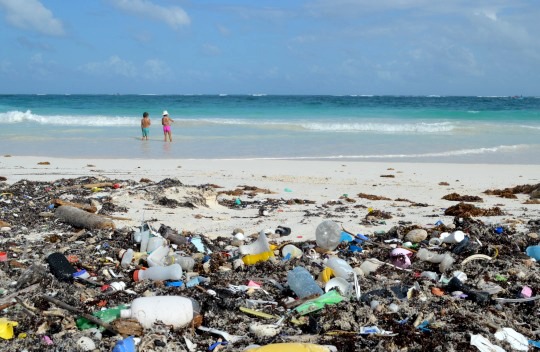
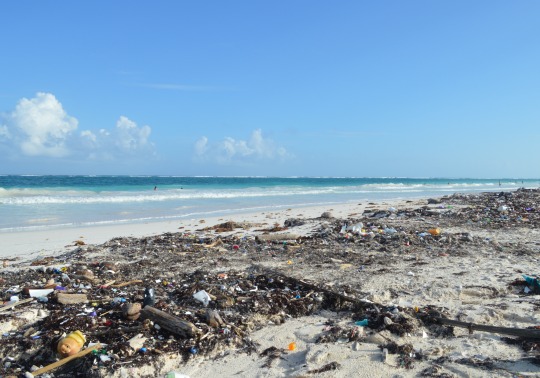
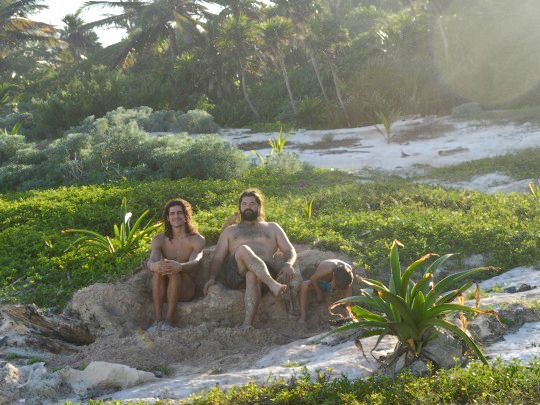
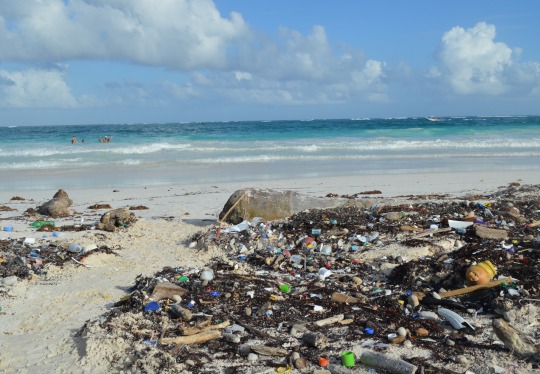

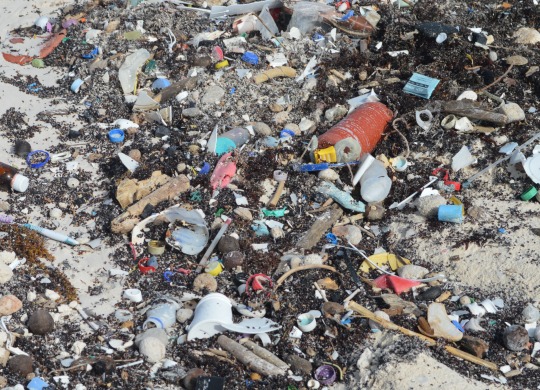
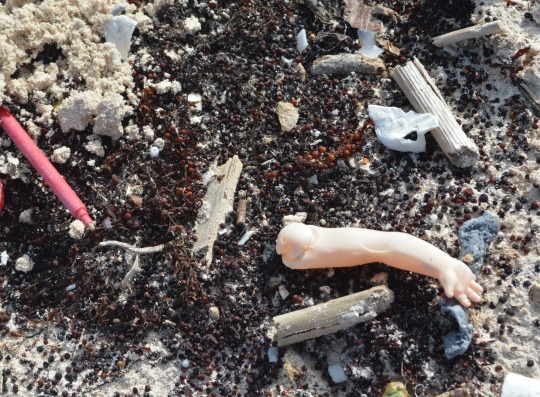
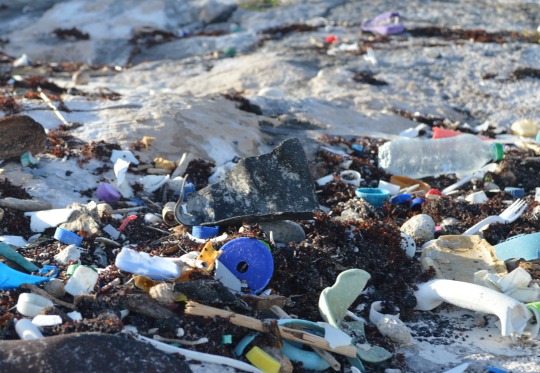
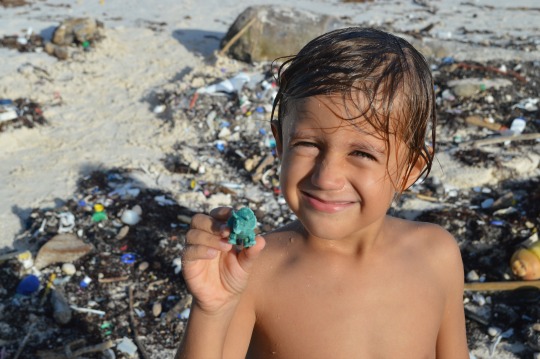
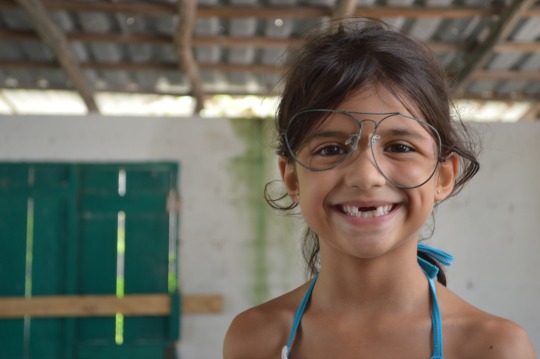

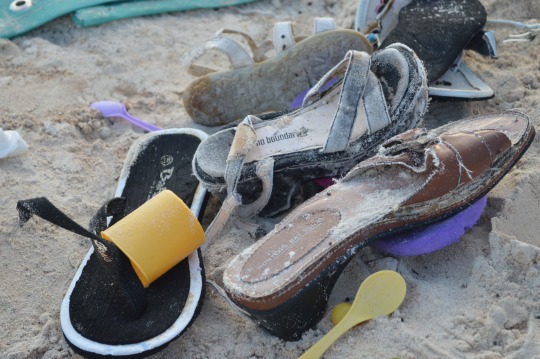
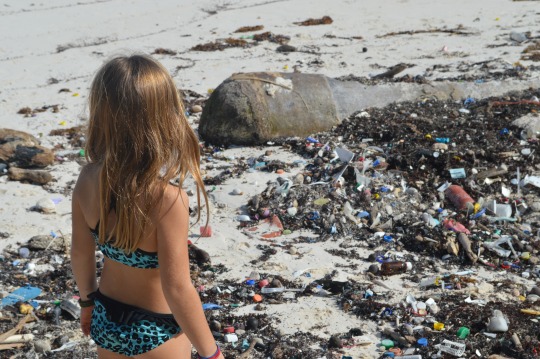
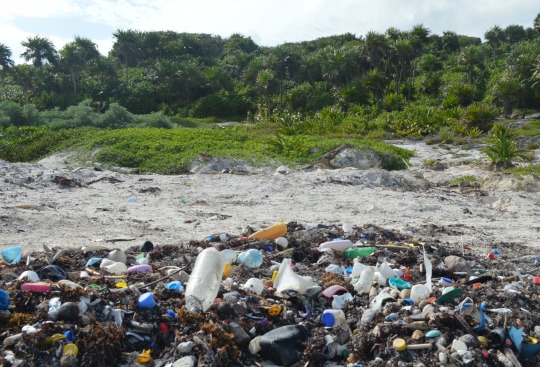


Wow! Thank you for this beautiful reminder to shift perspective and flow back to the positive.
This is difficult…and profound.
I will need to process and incubate this.
For that alone I thank you!!
You are an inspiration! Thank you so much for shining light on the trance of fear! I don’t normally comment on things….but this post blew me away (AND the post about the holidays, which is how I found you to begin with big thanks to Katy Bowman) and I want to share my appreciation 🙂
I feel this post deep in my gut. I struggle with this…I call it paralyzing environmental guilt that disables the ability to think clearly and think creatively. It sucks hope and breeds despair. Thank you for shining light on a different path where we do not get steeped in sadness, but instead focus on possibility. We need more of this thought process in today’s world so that we are neither blinded by despair or immobilized by the magnitude of what is going on around us in both our communities and in our world. The world is after all a beautiful place in all it’s wonder and ugliness. All we can do is our best to be a light in whatever way we can, wherever our feet take us or our roots take hold. We must think beyond hope and beyond sadness to a new way of life. Thank you for being a light in your own special way.
If only the problems associated with all this plastic debris was just the visual one! Humans don’t like to look at their waste-They like to flush it “away”, send it to landfills or out to sea, bury it, etc.
Alas, there are so many other problems with the rest of this plastic and garbage – the stuff not washed up on the beaches.
The gigantic Pacific Gyre – and several other gyres in the oceans of the planet are clogged with this crap.
Birds and sealife are repeatedly poisoned, trapped, and killed by the floating islands of plastic the size of Texas. It’s not sad -it’s criminal!
A long time ago I was taking an early morning walk in the countryside in Ireland. I came upon a gypsy wagon driven by horses. This was very unusual for me to see, being an American. I was fascinated, and as I walked, the Irish gypsies, called “tinkers” walked with me. A young girl of 16 saw my rings, and asked if I would give them to her. They were precious to me, so I told her “no” with some uncomfortableness. Then she offered to tell me my fortune, and tell me the “boy that would marry me” if I gave her my levi jacket… I politely said no again. All the while, her little 3 year old brother was tugging at me, and trying to get my attention. When I turned my attention to him, he pointed to a trash heap, a small dump for the local village. He led me there, and began to pick up shiny little pieces of foil gum wrappers, and various shiny treasures, and handed them to me with a great happy smile. Perceptions and labels!!! I’ll never forget that! : )
This really takes the dialogue about the environment, animal rights, and even human rights to the next level.
It *is* too easy to feel horrified. In fact, the horrific seems to draw us– like moths to a flame.
But what do we do about it (other than rage)?
Do we go deeper? Do we question our own mindset? Our own actions that contribute directly or indirectly to the “problem”?
What an amazing perspective that you can apply to so many environmental and social movements. It would be great to see this sort of story in major media outlets. This kind of story empowers us. Thank you.
This reminds me of an art exhibit I saw last month. I can’t recall the artist, but he was from the South (USA) and had over a dozen siblings. He created art from trash. He said he loved going to the dump and pulling out “beautiful things”… as a kid all he had were discards, so he learned to create with them.
Lovely, Beth. Love it!
You want to know what I saw…..people in bathing suits! And I thought how nice a warm region would be right now!!
This post was perfect timing for me! I am trying to find solutions to the garbage dumping on a small island off the SE coast of Bali, where I’m living and working as a volunteer coordinator, and you’ve given me some great insights on how to see possibilities and solutions. Cheers!
Thanks so much for your insights! I found this article very moving. I have quoted a six-or-so lines excerpt on my fb wall, with attribution to you; hope that’s okay.
This post, as always is beautiful and moving. I think I’m going to need to read it several times to even have it sink in all the way. So much good stuff here. I pride myself on being able to see situations ‘outside the box’ from most other people; even I hadn’t thought of this one. Thanks!!
Wow. I am dumbfounded. This absolutely staggering display of naivety and apathy is mind blowing. This situation becomes sad when hundreds of thousands of sea creatures die every year from this “beautiful” trash. It becomes sad when the toxins leaching from the plastics kill all marine life, choke rivers and poison our drinking water. It becomes sad when our ecosystem can no longer sustain our arrogance, self righteousness and blind consumerism.
I live in a very clean coastal area, comparatively, and yet beautiful sea turtles are continually washed ashore with as much a 1/4 of their body weight in plastic in their stomachs. Your children are gorgeous and I mean no ill in saying this, but imagine feeding your children 5kg of plastic, telling them – actually making them believe – it is food and forcing them to consume it. And, when they are so very very sick, tell them to ‘radically accept’ their way back to health.
I have an 11-year-old son, a fairly similar age to your two beautiful children. I teach him positivity – the positivity of CLEANING THE BEACHES UP, for saving the lives of marine creatures, how wonderful it is that, because of our reusable cutlery, our stainless steel drink bottles and our mason jars, we DON’T need to pollute by using single-use plastic products. I see a beautiful world. I see the positivity in cleaning it up and protecting it. What saddens me, what I fear, is the apathy and negligence of such a large percentage of the human race.
Please – I beg you – teach your children that the happiness in this situation isn’t in finding treasures, it is in saving the lives of our fellow earthlings and the joy in being part of the change that heals our planet.
Tommy, Thank you for your passionate and poignant response. I studied environmental science and sustainable agriculture in college. I, too, feel a deep and abiding protectiveness for our planet and have spent many years trying to right my own actions enough to settle my conscience. It was never enough. The knowing that just by being alive I was stressing the already-precarious balance gave me years and years of grief and despair. The two children in this particular post are not my own, they are friends. I have four daughters. I work hard to teach them to live responsibly and with reverence for the natural world. We, too, use reusable bottles and mason jars, etc… We also contribute to the waste stream, as do you. Something shifted in me a few years back when I realized how much my sense of overwhelm by the enormity of the issues was interfering with my ability to contribute to positive change. I was making myself miserable trying to achieve ridiculously high self-imposed standards. I have come to believe that the cleaner we make our minds and more thoroughly we repair our hearts, the more able we are to see truly radical solutions. Radical acceptance does not imply complacency or apathy. Not at all. It is merely the internal equivalent of exactly the stewardship you speak of.
Everything you write is so pertinent to what I find going through my head and life. I will be in Tulum next week, eager to be off the common vacationer’s path and explore the reality of everyday life there, as I do wherever we travel. Thank you for this still beautiful view and profound insight. You are a gift.
I really liked this post. My first thought is how does this happen…isn’t this stuff suppose to go to a landfill, and my second thought is why didn’t someone donate those shoes to my favorite thrift store!! And really with so many creative ways to repurpose I don’t understand all the throwing away. Making better choices is important but believe it or not those choices can be too expensive for some, and some are just too ignorant and living a far from stellar life to care about it. I do believe if you can make environmental waste and the elimination of it your main focus in life then you’ve got a pretty good life compared to most! It’s important in our lives to find a balance so that we can survive and thrive in our world and not just live with anger and fear. I love that shift in you, from the moment you decided to not be angry with Monsanto. Being angry and afraid all the time is exhausting (which takes away creativity), and I too have been evolving to ignore the constant alarm ringers. We must be the change we want to see, not try to force others to change to be what we want them to be. Humans truly learn no other way than by watching modeled behavior.
I get Tommy’s point…I feel it.
but it’s about how we get there…
Pollution is a form of unconsciousness. so to look at…
“…. the reasons we’ve become so complacent and detached from the very life force that sustains us.”
I think that’s where it’s at. And when we figure that out, change will occur naturally. In the meantime, picking up other people’s trash certainly doesn’t hurt. I do it all the time and so do my kids.
Thanks for sharing, i´ve bee very touched by your optimism, your passion and your courage
<3
Truly beautiful. A wake-up call.
Thank you.
Yes, a revolution of love is a revolution without losers. Our planet and we are changing discovering what we once thought was truth is no longer true. We are coming out of adolescence where we thought we knew everything adult, into adulthood where we know, like a child, we must see the possibilities.
The human mind is amazing. Given free reign it can find ways to justify and/or accommodate most anything, including environmental degradation, addiction and social injustice. We find ways to mentally make peace with the world around us that make us feel good about our choices and circumstances. That’s human nature, but the trashed out beach reminds us of the sad consequences. It’s repelling and ultimately unacceptable to my soul. You may have found a way to successfully shift your perspective. But reality remains what it is. Sad, yes. Very sad.
First time I have come across your website and I so love reading posts such as this! Spreading new ways of looking at things that are positive – if that isn’t great I don’t know! Thanks for asking more questions!
Thoughtful questions. Always good to question a commonly held perspective. However, I hunbly disagree. A couple quick thoughts: In terms of the quote that “the world isn’t Dying, it’s changing… ” The statistics say otherwise. If you have not picked up The Sixth Extinction, do so. All that we are doing is wiping out life forms in ways that may make this planet very devoid of life. Strictly speaking, it’s only changing and it’ll recover. But the recovery will probably take 100 million years to recover from the destruction to biodiversity which we are causing.
So, I won’t fall into despair, but pardon if I don’t look on the scene with gladness.. As just a new scene. Any more than I will look on Appalachian mountain top removal as simply “changing” the topography. It’s not. It’s killing he planet.
A great, thought provoking article, thank-you! I am a big fan of Wade Davis. A wonderfully on point quote. I love your site. So refreshing to stumble across a like minded person on a similar journey through life. xx